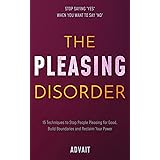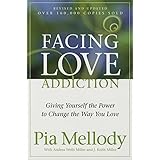Reports suggest that 5 to 10% of the population could be experiencing internet addiction, a statistic that underscores the pervasive nature of our digital lives. As highlighted in the video above featuring Dr. Jeff Gardere, Ph.D., distinguishing between typical online engagement and problematic internet use can be challenging in an era where connectivity is constant. Since the web became a mainstream tool in the 1990s, our reliance on it for work, education, social interaction, and entertainment has dramatically increased. This widespread integration means that what was once considered excessive might now seem normal, yet the potential for detrimental effects remains a significant concern for mental well-being.
Navigating the Digital Divide: When Online Life Becomes Excessive
The internet offers unparalleled convenience, allowing nearly every task to be accomplished from the comfort of a computer or mobile device. From managing finances to connecting with loved ones across continents, its utility is undeniable. However, this ease of access also presents a unique challenge: understanding when healthy engagement transitions into compulsive internet use.
While spending extensive time online is not inherently negative, especially for professional research, educational pursuits, or maintaining long-distance relationships, a shift occurs when online activities begin to overshadow real-world responsibilities and interactions. When the digital realm starts to take precedence over daily life, interfering with commitments at school, work, or within personal relationships, it may indicate a deeper problem. Recognizing this distinction is the crucial first step toward addressing potential internet dependence.
Identifying the Signs of Internet Addiction
Understanding the common indicators associated with internet addiction is pivotal for anyone concerned about their online habits or those of a loved one. These signs often manifest as changes in behavior, mood, and priorities, reflecting a growing dependency on digital interactions. Being aware of these symptoms can help in early identification and intervention.
The Pull of the Screen: Constant Preoccupation
One primary sign involves a persistent preoccupation with being online, even when offline. Thoughts frequently drift to the internet, with individuals often planning future online activities or strategizing how to gain internet access from various locations, such as during family events or work meetings. This mental pull signifies a strong psychological attachment, indicating that the internet’s influence extends beyond mere convenience into a significant mental focus.
Prioritizing Online Over Offline: Neglect and Deception
Individuals grappling with internet addiction often find themselves neglecting significant aspects of their life. Family time, friendships, and professional or academic responsibilities are frequently sacrificed in favor of spending more hours online. This neglect is often accompanied by feelings of guilt, which can then lead to deceptive behaviors. Lying to family and friends about the actual amount of time spent online becomes common, a tactic to avoid confrontation or judgment about their internet usage.
Emotional Responses to Offline Status
A notable symptom of internet dependence is the experience of negative emotional states when internet access is unavailable or limited. Feelings of anxiety, irritability, restlessness, or depression are commonly reported when individuals cannot engage with the online world. These withdrawal-like symptoms are powerful indicators of a psychological reliance, showcasing how deeply integrated internet use has become into one’s emotional regulation system.
Repeated Attempts to Cut Back
Many people who suspect they have an issue with internet use will attempt to reduce their online time, only to find themselves unsuccessful. These repeated failures to adhere to self-imposed limits or to control the duration of online sessions are a classic hallmark of addictive behavior. The inability to consistently regulate one’s internet usage despite a desire to do so highlights a loss of control, reinforcing the idea of a compulsive pattern.
Understanding Vulnerability: Who is More Susceptible to Compulsive Internet Use?
Certain individuals face a higher risk of developing compulsive internet use, largely due to pre-existing conditions or life circumstances. Recognizing these risk factors can provide valuable insight into why some people struggle more with managing their digital habits than others. Understanding these vulnerabilities is key to both prevention and targeted support.
Co-occurring Mental Health Conditions
People who are already managing mental health challenges, such as depression, anxiety disorders, or other psychological illnesses, are often at increased risk. The internet can serve as an escape or a coping mechanism, temporarily alleviating uncomfortable feelings. This can create a cycle where online engagement provides brief relief, leading to increased reliance and potentially exacerbating underlying mental health issues without proper intervention.
Other Addictions and Predispositions
An individual’s history with other forms of addiction, including gambling, sex, or pornography addiction, significantly increases their susceptibility to internet dependence. The neurological pathways involved in addictive behaviors can be similar across different substances or activities, meaning a predisposition to one addiction might lower the threshold for developing another. The internet often facilitates access to these other addictive behaviors, creating a complex web of dependencies.
Social Isolation and Connection Seeking
Loneliness or the perception of having few friends can also make a person more vulnerable to excessive internet use. For those who struggle to socialize in person or feel isolated, the internet offers a seemingly endless source of connection and community. Online platforms can provide a sense of belonging and validation that is missing in their offline lives, leading to an over-reliance on digital interactions for emotional fulfillment. This pursuit of connection, while understandable, can paradoxically deepen feelings of isolation from the real world.
Practical Strategies for Managing Your Digital Habits
If concerns about excessive internet use arise, several practical strategies can be implemented to regain control and foster healthier digital habits. These approaches focus on setting boundaries, prioritizing real-world interactions, and developing self-awareness regarding online behavior. Taking proactive steps can significantly impact one’s overall well-being.
Embracing the Digital Detox: Scheduling and Boundaries
A key strategy involves establishing clear boundaries for internet use. Setting specific hours during the day when internet access is allowed, and adhering strictly to these times, can help to re-establish control. Creating a list of essential online tasks, such as responding to emails or paying bills, and completing these first can ensure necessary digital engagement without drifting into excessive browsing. Utilizing a timer to enforce these limits provides a concrete reminder to log off when the allocated time expires, fostering greater discipline in managing online activities.
Prioritizing Real-World Connections
Consciously scheduling activities with friends and family members is crucial for shifting focus away from digital interactions. Inviting loved ones for a coffee or a walk encourages face-to-face communication and strengthens offline relationships. During these real-world engagements, it is beneficial to leave smartphones or other portable devices at home or keep them out of sight. This practice minimizes distractions, allowing for more present and meaningful interactions, which helps to counteract the isolating effects of excessive internet use.
The Power of Self-Monitoring
Regularly reflecting on one’s internet usage patterns can provide valuable insights into triggers and habits. Paying attention to what leads to prolonged online sessions, whether it’s boredom, stress, or a specific social media notification, can empower individuals to develop alternative coping mechanisms. This self-awareness allows for intentional choices about how and when to engage with the internet, moving away from automatic or impulsive online behaviors towards more mindful digital consumption.
When Professional Help is Needed for Internet Dependence
Despite efforts to cut back and implement new strategies, some individuals may find themselves unable to control their internet usage. If repeated attempts to reduce time spent online consistently fail, or if the symptoms of internet addiction continue to severely impact daily life, professional intervention may be necessary. Seeking guidance from a mental health professional is a critical step; they can provide tailored support and treatment plans. This professional assistance can help individuals navigate the complexities of internet dependence, offering pathways to healthier digital habits and improved overall well-being.











